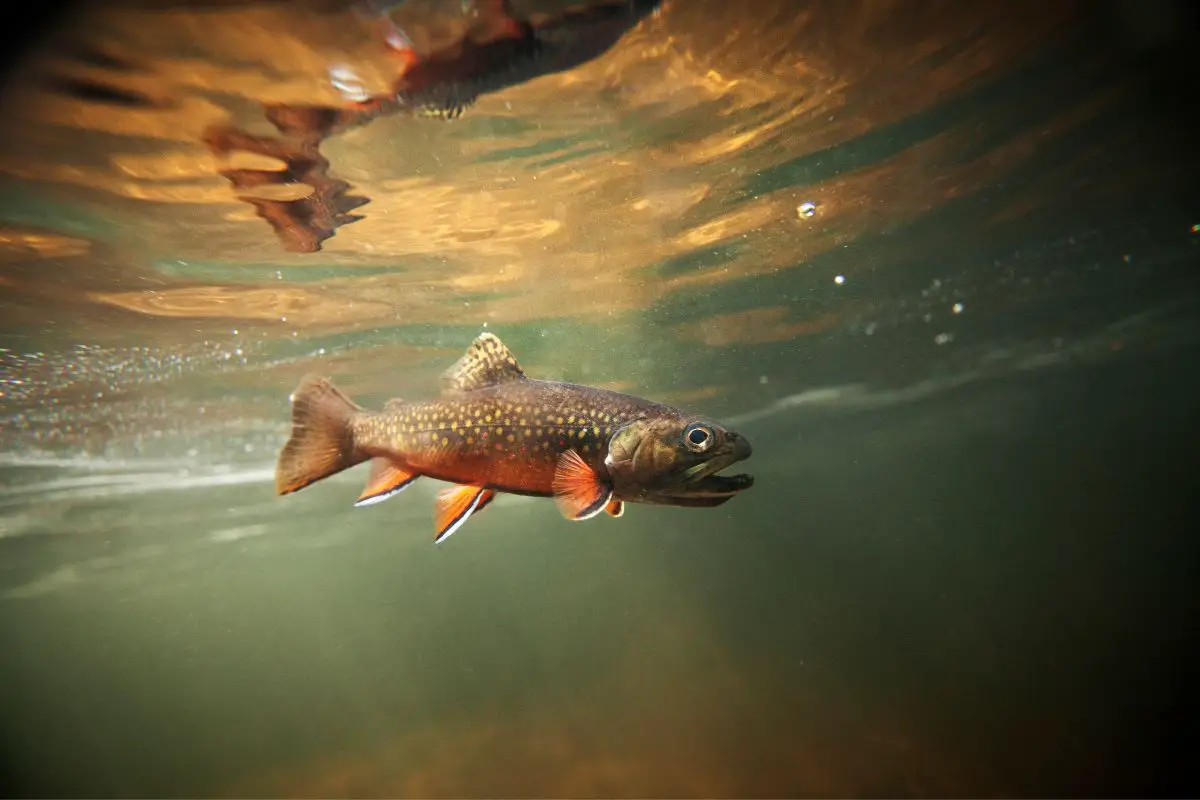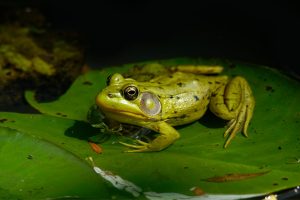New Hampshire is home to bountiful wildlife. The waters and ground alike are teeming with all manner of creations great and small.
And what a wonder it is to share this planet with so many different species, to live in a place with such vast biodiversity.
Something many take for granted. Now, this isn’t always out of greed or callousness, though it very often can be. Sometimes it is the simple sin of underappreciating what we have until it is too late and it is gone.
And while New Hampshire has bountiful biodiversity now, many of these stunning species are at risk. And one of the amazing animals that currently finds home in New Hampshire is the state fish the Brook Trout.
And alas, this special state fish is one of the many animals that also finds themselves in the New Hampshire Conservation List as a special concern.
In this article, we’re going to take a dive in a little deeper, and experience life as a New Hampshire Brook Trout. So let’s get to it.

Let’s Shrink Down To The Size Of A Fish
So to experience life as a Brook Trout, we must become a Brook Trout. So let’s fire up those imaginations and feel ourselves shrink down to a fish.
You come in many different color combinations. Your background color may be almost red, it could be silver, sometimes it’s darker like a greeny olive, or you could even be black.
But regardless of your background color, you’re definitely going to have spots across your skin. These may be a pale color or a red color. But each one will have a blue outer circle known as a halo.
Your underbelly may contrast with your background skin color. Maybe yours is pink or red? Mine is yellow.
If you look to your sides you’ll notice you have white borders across the outer edges of your fins. And when you wiggle your tail you’ll notice it is slightly forked.
And now that you look like the perfect brook trout, let’s swim off and find your home.
Swimming To Your Home
Are you keeping pace? Don’t lose me now. We’re almost there. As a brook trout, you can live in ponded waters should you wish, but you’ll notice just how much more you prefer a flowing riverine when we get there in just a second.
Okay, we’re here now. The first thing you notice is that the water is cool, and you like that a lot.
There are high dissolved oxygen levels too, and you like that even more. You won’t settle anywhere where the waters exceed the temperature of 70 degrees Fahrenheit. It’s just too hot.
You like rivers and streams that aren’t small, but you don’t like really large rivers either because they don’t have access to the habitat variability that you need.
You want a home that has the main river with a mixture of pools, riffles, and runs as well as some banks and fallen trees. That is your dream, ideal home.
Oh, you also want it to be shaded and cool but also have access to floodplains and mature trees too. Don’t ask for a lot, do you?
A Little Bit About Yourself
You are a member of the salmon family, with an adaption to cooler temperatures. The issue with this is that it does put you at a greater risk of deforestation along streams and rivers. You are, however, a fantastic swimmer.
And while some of you may be content with the same river for life, many of you are adventurous enough to swim for many, many miles looking for the perfect habitat.
You’re also a pretty good predator. You’ll munch on either terrestrial or aquatic invertebrates. And you’re not really fussy when it comes to the age of said aquatic invertebrates. You’ll happily chow down on larvae, nymphs, or adults.
In terms of terrestrial invertebrates, you’ll eat caterpillars, beetles, spiders, grasshoppers, and whatever else find themselves on tree branches or overhanging shrubbery.
Unfortunately, your life as a brook trout will be fairly short-lived. You will tend to only live to be around five years old if you live in the wild. And that is if any of the other threats and dangers don’t get you first.
Which leads us to our next point of interest. Why are you, the brook trout, a special concern in terms of conservation? Let’s take a look at some of the threats that await you.
Why Your Conservation Status Is Of Special Concern
As a brook trout, you may have noticed that your numbers are dwindling down quite significantly of late. Where you once used to be rich and plentiful, you are becoming far and few between. But why? Let’s take a look.
Susceptible To Changes
You’ve set up camp in your home. The conditions are just right, and you’re happy. You can survive and reproduce happily and freely.
And then slowly, over time, you notice that you can’t really do these things anymore. And your life expectancy starts to plummet.
You don’t understand why, but it is because there has been a change to the water chemistry or general habitat that has made the living conditions inhospitable.
And, though there are humans trying to prevent this from happening, there are very few visible signs to be spotted.
It’s not like an oil spill that can be recognized immediately. And often, by the time it is realized, it’s just too late for you.
Excessive Sedimentation
One day your habitat is fine and you have access to all the essential components for survival. The next day, these sources have been covered or blocked.
As a result, the area is no longer hospitable and your spawning locations, your holding areas, and your general living space becomes either somewhere that is very hard to survive in, or it becomes lost forever.
Fishing
I hate to be the bearer of bad news, but, you’re a pretty popular fish. This means that the humans above the water like to catch you. I’ll spare you the reasons why.
But, should you get caught on a hook, it’s not likely that you’ll revisit your home. And because of this, your general population will likely continue to reduce in number.
Final Thoughts – Growing Back To Human
So, how did you find your time as a brook trout? Hopefully, you learned a fair amount about the state’s fish.
We got to see exactly what this type of fish looks like, and we settled down for the night in their favorite habitat, and learned a few interesting facts about said fish, along with the different threats that could potentially lead to their extinction one day.
The Brook Fish are the only native stream-dwelling trout species left in New Hampshire, and it is even believed that they were once present throughout all watersheds in New Hampshire.
It would really be a shame to lose this species from our waters. So please try where you can to protect them. You can donate to the cause here.



